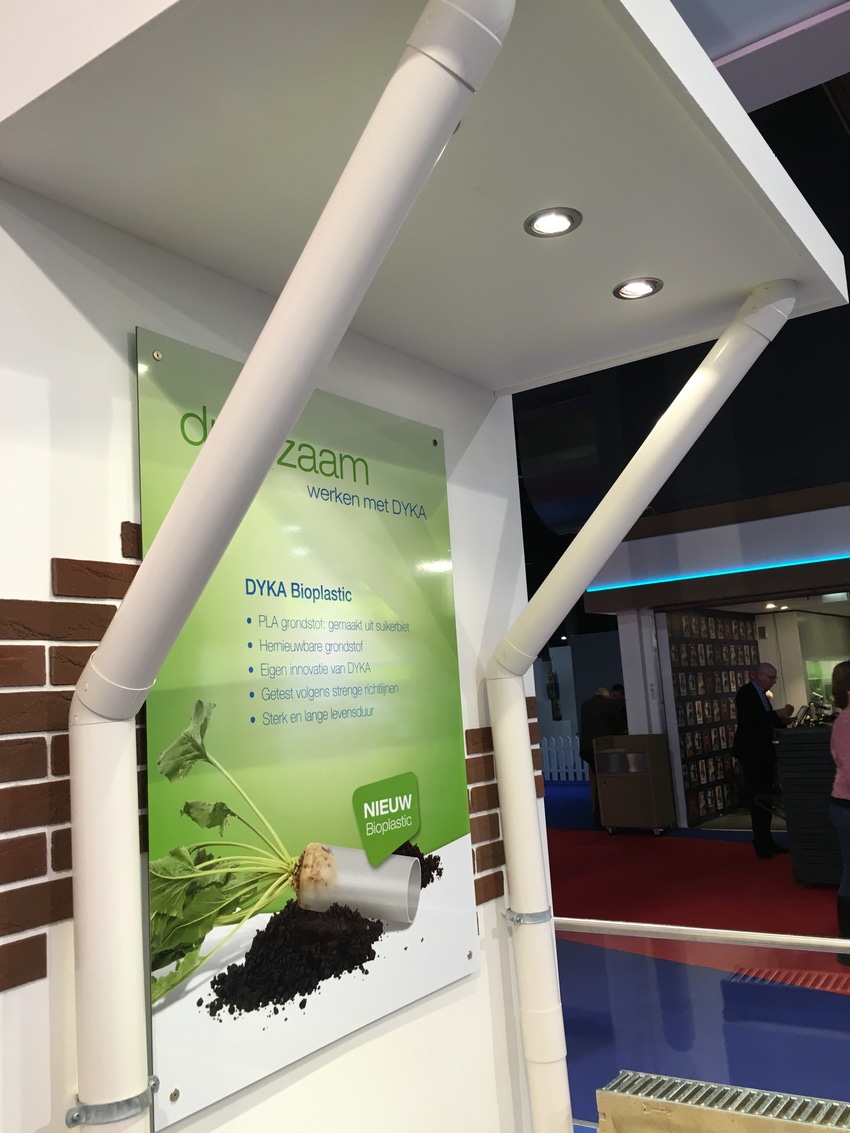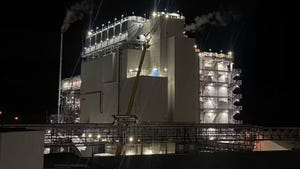Dyka debuts world’s first bioplastic pipework at the VSK international trade show
Belgium-based Dyka, a leading European manufacturer of plastic pipework systems and member of the Tessenderlo Group (Brussels), has launched the world’s first piping system made of plant-based, renewably sourced plastic material under the name Dyka Bioplastic.
February 5, 2016

 The new bioplastic line launched earlier this week at the VSK international trade show for the installation sector held once every two years in Utrecht (Netherlands), and, for now, consists of a rainwater piping system designed for residential buildings, both newly built and older homes. Dyka said that additional products will be rolled out in due course.
The new bioplastic line launched earlier this week at the VSK international trade show for the installation sector held once every two years in Utrecht (Netherlands), and, for now, consists of a rainwater piping system designed for residential buildings, both newly built and older homes. Dyka said that additional products will be rolled out in due course.
“We have only just got started,” said Barry Kooistra, Product Manager at Dyka in the Netherlands.
The new pipes and accessories are made of a durable, non-biodegradable PLA derived from sugar beet and developed in collaboration with Netherlands-based lactic and polylactic acid producer Corbion Purac. Because PLA is derived from renewable sources, it has a smaller carbon footprint than conventional oil-based materials.
“Also, pipework made from PLA bioplastic is comparable to piping made of PVC: the material is very strong, and has a long service life,” said Kooistra. “It’s a completely new development in the construction industry.”
He also does not rule out the possibility that Dyka would also be looking at bioplastic options other than PLA in the future. Dyka has the ambition, said Kooistra, to further broaden the available application options for bioplastic materials within the construction industry, in order to contribute to the transition towards a more sustainable building and construction industry supply chain.
For Dyka, PLA further extends the range of materials, which includes PVC, PP and PE, already used by the company. However, cost is still an issue: the new bioplastic pipe system is more expensive than one made from conventional plastics. The raw material is more expensive, and, as Kooistra pointed out, it is the material costs that determine to a large extent the price of a product—any product.
“Yet we have found that the construction industry is starting to look differently at materials and material costs,” he added. “It’s no longer just price that matters; the market and consumers are starting to demand greener products, and project developers, especially those operating in the higher segments of the market, are now willing to invest in delivering more sustainably built houses.”
In his view, bioplastic is the material of the future. “This material will enable us to further enhance the sustainability of the building and construction industry supply chain. The choice of material can have a real impact on waste streams,” he said. “Plus, it enables us to respond to the changing demands of consumers and the construction sector as a whole, as well as reducing our dependence on fossil fuels. It’s a great example of how Dyka can use its knowhow and expertise to contribute to a more sustainable sector.”
Prior to launching the new rainwater system, Dyka spent a number of years researching and developing a high-quality bioplastic end product. The material and the new downpipe system has been extensively tested in accordance with the most stringent requirements and guidelines and is now ready for the official market launch. The application possibilities, said Kooistra, are ‘extensive.’
What about the end of life? According to Kooistra, Dyka is seriously looking at the possibility a recycling program for PLA. “But that’s a process that will need some time—we’ve only just launched our first product. We may have to collaborate with parties outside the construction sector to get the scale needed to start up a recycling program. That all remains to be seen, but it’s something we are certainly going to pursue.”
The Dyka bioplastic piping system will be introduced in May 2016 to the Dutch and Belgian market.
About the Author(s)
You May Also Like


